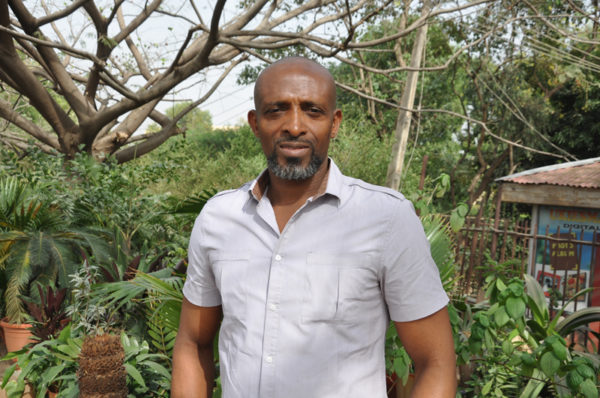
Odafe Atogun’s debut novel, Taduno’s Song, follows a rebel musician who returns home from exile to find that no one recognizes him any longer. Loosely informed by the life of Afrobeat legend Fela Kuti, the book has been described as Kafkaesque. Booker Prize winner Marlon James has called it “a colossal epic disguised as a small novel,” while Chigozie Obioma characterizes it as having “plunged into the depth of the sea of Nigeria’s history.” This interview took place via email between Odafe Atogun and Kelechi Njoku, finalist for the 2017 Commonwealth Short Story Prize for Africa Region.
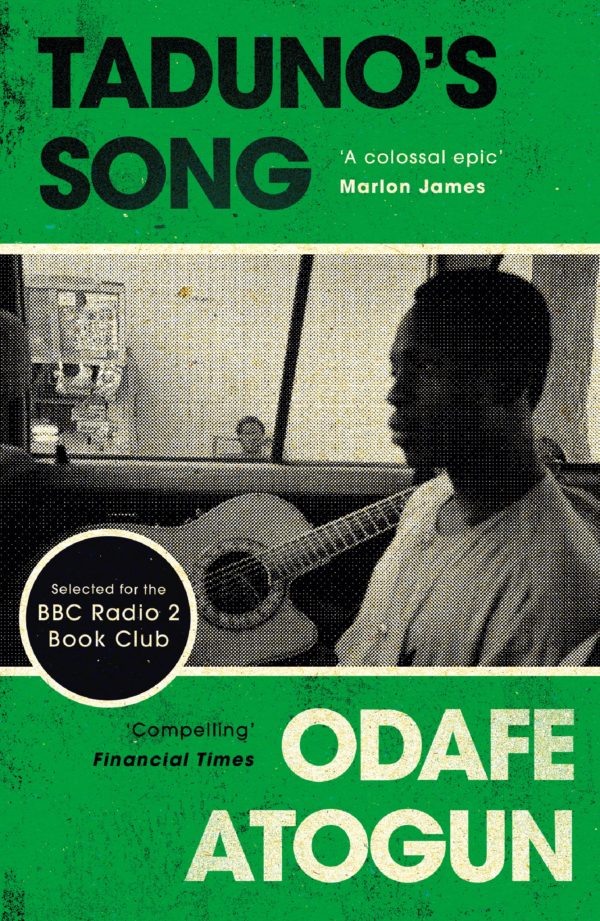
Kelechi Njoku
Your novel springs from the loss of memory: Taduno confronts the fact that people who used to be a part of his world no longer remember him. And you have portrayed this strange kind of amnesia as a good thing—offering the reader a chance to approach the novel using a different set of world-building rules from what he knows before. Was this a deliberate device to get Taduno to be “reborn,” to become someone he wouldn’t have been if he wasn’t first erased from his people’s memories?
Odafe Atogun
I compare an artist to a prophet. They are both saddled with a daunting task—to envision a greater tomorrow for their society. But seldom is a prophet recognised in his own land. The same goes for an artist. So, it is not so much a loss of memory as it is a test of Taduno’s consciousness as an artist. How much sacrifice is he willing to make in the face of rejection? It is his level of consciousness as an artist that propels him in a society that fails to recognise him. It was a deliberate device to explore the place and struggles of an artist in society.
Kelechi Njoku
For a novel about music, it has been compared a lot to Kafka’s The Trial, where the character Joseph K. is undergoing this mystifying run-in with the government of his country. Placing Kafka’s novel and Fela’s song about mind control, ‘‘Zombie,’’ side by side, I get the sense that your novel is driven by a staunch fear that the entity called “Government” is not only capable of governing our bodies but also our minds. Is this so?
Odafe Atogun
A dictatorial government is often driven by its own fear. It is this fear that accounts for its brutal tendencies and drives its propagandist agenda, which becomes effective when it succeeds in taking over the minds of the people, who are perceived to be enemies of the state. This was what happened in The Trial. This was what happened in Taduno’s Song. It is not enough for a dictatorial government to shape and control the affairs of a people through unpopular policies; it must also take control of their minds—only then does it feel secure.
Kelechi Njoku
The Lagos of the novel feels sterile, only stirring to life at the sight of trouble, such as when Taduno returns to it early in the novel. How did you come about this unusual, eerie characterisation of the city?
Odafe Atogun
Often life goes on ‘‘normally’’ in a typical city, town or village with little or no care about government or the policies which shape the people’s existence. The struggle for survival is paramount, everyone minding their own business. When Taduno returns, his music, and even his mere presence, raises the consciousness of the city’s people. This is natural in any society where the arts and activism are vibrant. In this sense, Lagos could be any city, town or village, anywhere in the world. The universalism of the story prompted me to create such a city.
Kelechi Njoku
There is a black-and-white feel to the novel’s morality: People are either good or bad. Taduno is upright from the beginning of the novel but, in the end, we are not quite sure what he is. How would you judge him now and the choices he made?
Odafe Atogun
The choices Taduno made were informed not only by his consciousness as an artist, but also by the natural instinct of a man in love. While it is natural for him to be torn by the decisions facing him, he, essentially, remained committed to love, and to his art, to the very end. I think this is what is most important.
Kelechi Njoku
Your second novel, Wake Me When I’m Gone, just came out early this month [August] in the UK. What should we expect?
Odafe Atogun
My new novel, Wake Me When I’m Gone, is a story about grief, love and the ultimate triumph of a mother who stood up against the evil traditions of her society.
*****
Buy Taduno’s Song on Amazon.
About the Interviewer:
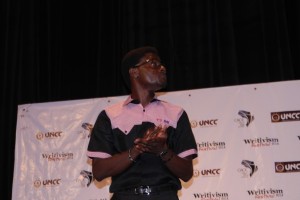 Kelechi Njoku swings between Lagos and Abuja as a freelance editor and ghost-writer. His story, “By Way of a Life Plot,” was shortlisted for the 2017 Commonwealth Short Story Prize. He was the West Africa Regional winner of the 2014 Writivism Short Story Prize, was shortlisted in Africa Book Club’s Short Reads (2014) and Naija Stories’ Best Short (2013). He has had work published in the Kalahari Review, Nigerians Talk LitMag,and Open Road Review, and has short fiction forthcoming in Litro.
Kelechi Njoku swings between Lagos and Abuja as a freelance editor and ghost-writer. His story, “By Way of a Life Plot,” was shortlisted for the 2017 Commonwealth Short Story Prize. He was the West Africa Regional winner of the 2014 Writivism Short Story Prize, was shortlisted in Africa Book Club’s Short Reads (2014) and Naija Stories’ Best Short (2013). He has had work published in the Kalahari Review, Nigerians Talk LitMag,and Open Road Review, and has short fiction forthcoming in Litro.


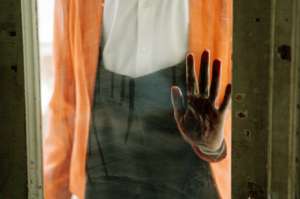


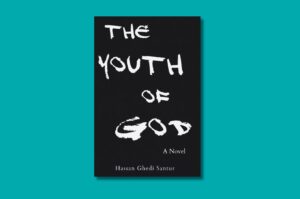



A Play of Power: A Review of Odafe Atogun’s Taduno’s Song - ELSiEiSY blog May 17, 2020 15:15
[…] messages”. This frightens the government. In an interview with Kelechi Njoku, published on Brittle Paper, Atogun affirms this “A dictatorial government is often driven by its own fear. It is this fear […]